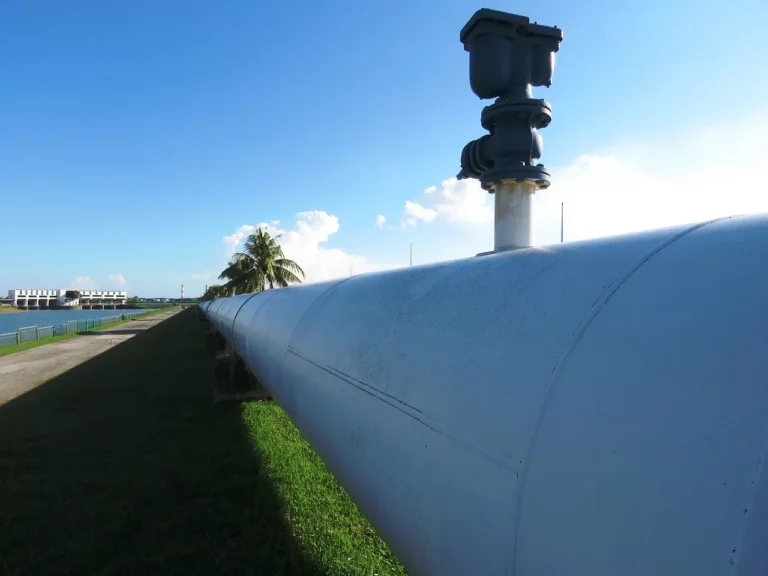
Shell GameChanger Accelerator™ Powered by NREL Welcomes Five Innovative Startups to Its Seventh Cohort
The Shell GameChanger Accelerator™ Powered by NREL (GCxN) has announced the selection of five promising startups for its seventh cohort, marking another step forward in the program’s mission to accelerate groundbreaking energy technologies. GCxN is a multimillion-dollar, multiyear collaboration between Shell GameChanger and the U.S. Department of Energy’s National Renewable Energy Laboratory (NREL). Since its creation, the initiative has focused on identifying and nurturing technologies with the potential to transform the global energy system, driving progress toward a cleaner, more reliable, and more secure energy future.
The program reflects the combined goals of Shell’s Powering Progress strategy—which seeks to accelerate the transition to net-zero emissions while providing more and cleaner energy—and NREL’s mission of developing integrated solutions for an affordable, secure, and sustainable energy landscape. Each of the five selected startups in this new cohort will receive $250,000 in nondilutive funding, access to NREL’s state-of-the-art facilities, and direct collaboration with leading researchers. This combination of funding, expertise, and technical support enables startups to overcome barriers in early-stage development, reduce risks, and move closer to commercialization.
Focus Areas for Cohort 7
Cohort 7 centers on two strategic areas that are increasingly vital to the future of energy:
- Future Feedstocks – new ways of sourcing and processing raw materials for biofuels and chemicals without competing with food supply or contributing to land-use concerns.
- Electrochemical Pathways to Fuels – innovative technologies that use renewable electricity and carbon dioxide as inputs to create fuels and other essential products.
By targeting these two areas, GCxN is helping startups build solutions that not only reduce carbon emissions but also create viable economic pathways for scaling clean energy technologies.
Startups Advancing Future Feedstocks
Aquora Biosystems (Ann Arbor, Michigan)
Aquora Biosystems is rethinking the way organic waste can be transformed into valuable products. The company is developing next-generation organic waste biorefineries capable of producing in-demand biofuels such as renewable natural gas and sustainable aviation fuel (SAF). Within the GCxN program, Aquora will focus on converting wet organic waste into ketones, which can serve as intermediates for downstream SAF production. Alongside this technology development, the company will also engage in techno-economic and life cycle analysis to better understand scalability and environmental impact. At NREL, Aquora will collaborate with researcher Cody Wrasman to refine its processes and validate performance.
Consolidated Carbon (Austin, Texas)
Consolidated Carbon is pioneering the use of industrial hemp as a feedstock to help address climate change. Unlike crops grown for food, hemp provides a sustainable, non-food biomass source that can be cultivated at scale with minimal inputs. The company’s approach involves producing hemp-based materials that actively reduce atmospheric carbon dioxide while avoiding competition with agricultural land used for food. GCxN will support the company by optimizing hemp pretreatment processes and analyzing the impacts of various strategies on economics and life cycle sustainability. NREL researcher Darren Peterson will collaborate with the Consolidated Carbon team to advance these efforts.
Startups Developing Electrochemical Pathways to Fuels
RenewCO2 (Somerset, New Jersey)
RenewCO2 is developing cutting-edge electrocatalytic conversion technology to transform carbon dioxide into fuels and chemicals using only water and renewable electricity. This technology has the potential to both utilize waste CO₂ and generate products essential for a low-carbon economy. With GCxN’s support, the company will work on reactor design, assess the properties of resulting fuels, and perform techno-economic analysis. RenewCO2 will partner with NREL researcher Cody Wrasman to push this promising technology closer to market readiness.
SKYRE (East Hartford, Connecticut)
SKYRE focuses on creating advanced electrochemical processes that convert carbon dioxide into high-value fuels and chemicals, including methanol and synthetic gas. Its flagship system, CO2RENEW, is designed to produce these products in an efficient and scalable way. GCxN’s role will include supporting the design of optimized feed and production manifolds and evaluating product separation methods to ensure quality and cost-effectiveness. SKYRE will collaborate closely with NREL researcher Nick Thornburg to refine its system for real-world applications.
Sora Fuel (Cambridge, Massachusetts)
Sora Fuel is tackling one of aviation’s most pressing challenges: producing sustainable jet fuel. The company has developed a highly efficient electrolyzer that can convert carbon dioxide captured from the air into synthetic jet fuel. Unlike conventional methods, Sora Fuel’s process avoids energy-intensive regeneration steps, offering potential for lower costs and higher efficiency. GCxN will provide support in designing improved subscale electrolyzer cells while addressing degradation pathways and other considerations critical for scaling. The company will work with NREL researcher K.C. Neyerlin to enhance its technology for future commercial deployment.
Perspectives from Program Leaders
The GCxN program is designed not only to provide financial and technical support but also to act as a catalyst for innovative thinking in clean energy.
“These five companies are tackling complex challenges in waste and fuel production with creative approaches, from unlocking underused biomass to pioneering carbon-to-fuel pathways,” said Johanna Jamison, GCxN program manager at NREL. “Through technical collaboration, GCxN helps de-risk emerging technologies and clear their path to scale and impact.”
Echoing this sentiment, Yesim Jonsson, Shell’s GCxN program manager, emphasized the importance of innovation to Shell’s long-term vision: “Shell is proud to support GCxN as it continues to catalyze breakthrough innovation. This new cohort reflects our commitment to scaling technologies that transform waste and emissions into valuable fuels, chemicals, and materials. These kinds of innovations directly support Shell’s ambition to become a net-zero emissions energy business by 2050 and to create more value today.”
GCxN’s Growing Impact
With the addition of these five startups, GCxN’s portfolio now includes 28 companies. Collectively, these portfolio companies have raised more than $940 million in follow-on funding and created more than 486 jobs. The program has also proven effective in accelerating technological maturity: startups typically enter GCxN at a Technology Readiness Level (TRL) of 4—indicating early-stage development and proof of concept—and graduate at TRL 6, signifying a working prototype or system demonstrated in a relevant environment.
This steady advancement underscores the value of GCxN in bridging the notorious “valley of death” that many energy startups face. By providing resources and partnerships that reduce uncertainty, GCxN enables innovators to move from promising ideas to real-world solutions that can be scaled.







